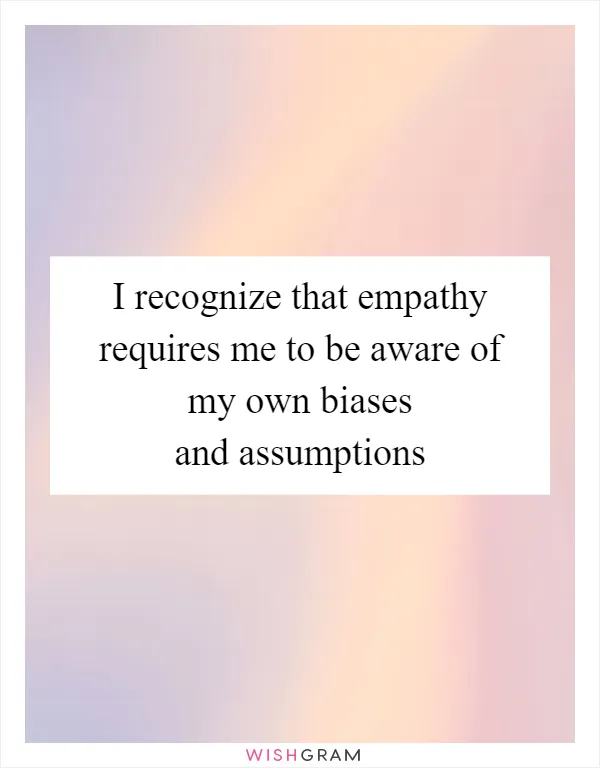I recognize that empathy requires me to be aware of my own biases and assumptions
Empathy is a powerful tool that allows us to connect with others on a deeper level. It enables us to understand their feelings and perspectives, and to respond to them in a compassionate and supportive way. However, empathy is not always easy to practice, especially when we are dealing with people who are different from us. In order to be truly empathetic, we need to be aware of our own biases and assumptions, and to recognize how they might be influencing our perceptions of others.
When you are aware of your own biases and assumptions, you are better able to understand how they might be affecting your interactions with others. For example, if you have a tendency to judge people based on their appearance or background, you might be less likely to empathize with someone who looks or sounds different from you. Similarly, if you have a preconceived notion about someone's personality or behavior, you might be less likely to see things from their perspective.
Recognizing your own biases and assumptions is not always easy, but it is an important step towards becoming a more empathetic person. It requires you to be honest with yourself about your own limitations and to be willing to challenge your own beliefs and attitudes. It also requires you to be open to learning from others, and to be willing to listen to their perspectives and experiences.
One way to become more aware of your own biases and assumptions is to practice mindfulness. Mindfulness involves paying attention to your thoughts and feelings without judgment, and being present in the moment. By practicing mindfulness, you can become more aware of your own biases and assumptions, and learn to recognize when they are influencing your perceptions of others.
Another way to become more empathetic is to practice active listening. Active listening involves paying attention to what someone is saying, and responding in a way that shows that you understand and care about their feelings. This can be especially helpful when you are dealing with someone who is different from you, as it can help you to bridge the gap between your own experiences and theirs.
